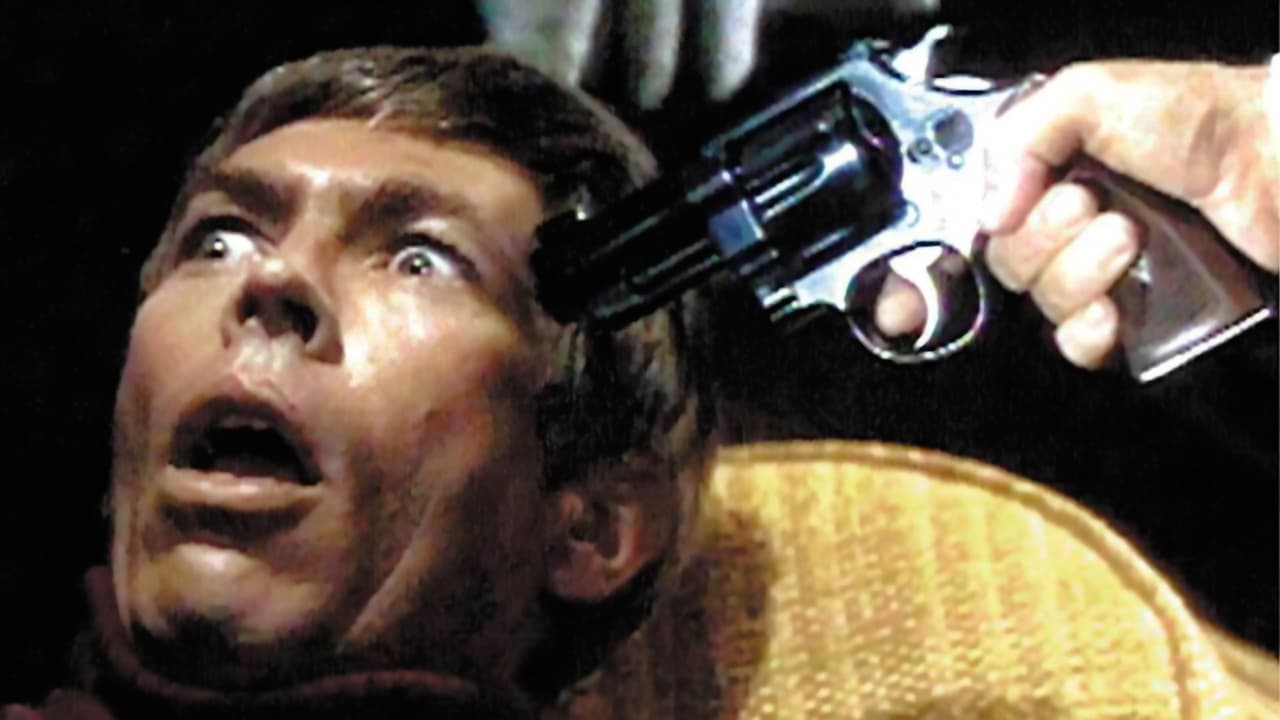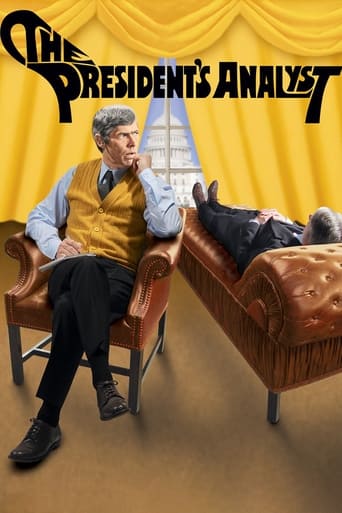Spoonixel
Amateur movie with Big budget
Bessie Smyth
Great story, amazing characters, superb action, enthralling cinematography. Yes, this is something I am glad I spent money on.
Kirandeep Yoder
The joyful confection is coated in a sparkly gloss, bright enough to gleam from the darkest, most cynical corners.
Yazmin
Close shines in drama with strong language, adult themes.
tedg
The gas has cooled on this balloon, and the (political) Earth shifted underneath. But that makes it a bit more enjoyable if you come to this for the structure.The story device is simple: cold war spy versus spy, only to learn that the (then monopoly) phone company trumps all. But the narrative structure is apart from that. It employs James Coburn, then well known for what we could later call folded acting: where his persona as Coburn is folded into his reactions as the character.That character is an analyst, who at least for the purposes of the film, has the ability to see below the surface and understand causal dynamics. He first is exposed to the president, standing as the surrogate for one nation's psyche (in relation to others). We meet the surrogates for those others as they mostly bicker, except for two opposing spies (both under therapy from our doctor).It is a brilliant choice, having our own in-story viewer being an analyst. This differs from the usual formula of detective/reporter/lawyer. Among other possibilities, it allows for three sequences internal to the mind. One is a marijuana-laced lovemaking session in a field; another an LSD trip. The third is a similar psychedelic torture method applied by the phone company. Perhaps these worked decades ago, but I think not. You need something less flippant to help us reference internal reflection.But they did do a good enough job of conflating the internal mind of the first two into the technologically induced visions of the phone company's headquarters. And that matters to us. Because the phone company here has little to do with phones. It is instead the sort of pervasive spy that sees us the same way we as viewers are seeing the film. Indeed, the end of the film pulls back and we see an audience of 'people' from the phone company. These are not people in fact, but robots which in this fabulation of analysis removes them from the scope of the on-screen analyst, so that the noir formula is preserved: we the audience by our viewing directly enter the film and manipulate an unknowing, hapless character.Of course no one would ever consider this an art film with serious pretension. That makes it more interesting to find these sorts of dynamics — perhaps intuitively designed — in a light mass entertainment.Ted's Evaluation -- 2 of 3: Has some interesting elements.
Jay Harris
In 1967 when this film first came out,I & everyone else raved about how funny & clever this political satire was. I am reasonably sure it was on my best of the year list. It was on many peoples list.I saw this tonight,I am sorry to say my original 10 rating is now only a weak 6.The problem is that now it is exceedingly dated, In the 1960's we were both in a cold war (Soviet Union) & Vietnam, also we had the hippie generation to contend with.Analysts of all kinds were all over the place. The Telephone Company is no longer a one firm monopoly.There is one long scene involving a telephone booth (today you cant find any,public phones are almost extinct).None of these developments are funny or even slightly humorous today..James Coburn was at the beginning of his career in 1967 & this was a major starring role for him. He was a very talented actor who could do nearly any type of role..The rest of the cast were mostly unknowns or from Television. GodfreCambridge was the biggest name player. William Daniels has a nice role as well.It really is not fair to use todays standard on a 41 year old film. I must do it for this movie. It is dated & no longer funny.There are a few racist type lines as well, They were not considered racist then.Ratings: **1/2 (out of 4) 70 points (out of 100) IMDb 6 (out of 10)
whpratt1
Enjoyed this great comedy film starring James Coburn, (Dr. Sydney Schaefer) who is a very successful analyst in New York City and he is contacted by government agencies to inform him that he has been hired to become the analyst for the President of the United States. Dr. Sydney enjoys his position dealing with the President but after a few months he becomes completely worn down mentally by all the problems the President has to deal with everyday. Sydney eventually packs his bags and winds up with a group of flower people during the 1960's and becomes a love person who enjoys the freedom of free love with very young gals. Foreign Governments become interested in Dr. Sydney because of all the secrets the President has told him during his analyst meetings and he is hunted down by all kinds of government agencies who want to capture him and some want to kill him. There is plenty of laughs and this is really a gem of a great film.
Merwyn Grote
My lasting view of Soviet-U.S. relations was clearly defined after watching THE PRESIDENT'S ANALYST. Soviet spy/assassin V.I. Kydor Kropotkin, played by Severn Darden, explains to kidnapped American psychiatrist Dr. Sidney Schaefer, played by the irrepressible James Coburn: "Logic is on our side: this isn't a case of a world struggle between two divergent ideologies, of different economic systems. Every day your country becomes more socialistic and mine becomes more capitalistic. Pretty soon we will meet in the middle and join hands." Beautiful, simple logic, clearly stated in a whacked-out, slightly psychedelic satirical farce about Cold War paranoia. A gem of genius in a world gone mad.Of course, it didn't pan out that way. The U.S.S.R., trying to maintain its communistic ideology in a world of blissful capitalistic greed, just couldn't keep up and went bankrupt -- financially, morally, socially and politically -- long before the great day of unification could arrive. If only the Reds had made THE PRESIDENT'S ANALYST required viewing, maybe they could have hung in there just a tad longer. Of course, the U.S. still continues to slip-slide to the left, but, oh well, that's politics.Coburn stars as the title character, a New York psychiatrist who lands the plum job of being the confidant to the President of the United States, who basically needs a shoulder to cry on before the job drives him looney tunes. At first, Coburn is elated at his new job, but soon he learns that a President's life isn't an easy one -- nor is the life of his shrink. But worse, the things that the good doctor learns under physician-patient confidentiality are a valuable commodity in international espionage circles. Thus, some people want to kidnap him and brainwash him for his secrets -- others just want him dead. Dr Schaefer suffers a bit of a nervous breakdown and hits the road; a gaggle of spies in hot pursuit.You'd be hard pressed to come up with a political satire more quintessentially sixties than Theodore J. Flicker's THE PRESIDENT'S ANALYST; giddily spaced out and always flirting with being just a little too silly and a little too over the top. It's a 1967 political satire made in the days before political satire became mean and strident. I mean, the unseen "president" in the title is treated with surprising respect, even though it would be fair to assume that he might be LBJ, hardly a man who endeared himself to anybody. Politics and political satire became surprisingly mean and vindictive from the Nixon years on, but a film like THE PRESIDENT'S ANALYST retains a sense of mischief rather than malice.As such, the film exists in something of a protective bubble of style. It is very sixties in tone -- dreamy pop-rock music in the score, a vaguely anti-establishment attitude, etc. -- yet, though the sexual revolution is just taken for granted, there isn't a mention of Viet Nam, anti-war protests, social unrest or anything too real that might distract from the superficial style and goofy story. Unlike, say DR. STRANGELOVE, the sardonic comedy isn't threatened by the gravity of its dark subject matter.As a spy movie, the film is sort of anti-James Bond; by the time it gets around to the high-tech shenanigans about a plot to control the world, it has already taken a good-natured look at everything from suburbia to rock 'n' roll. There aren't any Connery-esquire Bond types -- or even anyone like Coburn's own Derek Flint -- rather the superspies the film offers tend to be chubby and middle-aged, with a cheerfully pragmatic view of their profession. Indeed, America's top agent is played by roly-poly African-American comedian Godfrey Cambridge. And though practically everyone in the film turns out to be a secret agent, the film gleefully works to avoid as many spy clichés as possible, and only surrenders to the clichés that can be gently mocked.The film has that giddy air of laid-back sophistication that suggests that it was created by smart people, all of whom were just a little bit high on some sort of illegal substance. Rather than having the martini-sipping, Playboy magazine-style of cool detachment of Bond, the film goes for the trippy, brownies-munching cool disenchantment of Sgt. Pepper. With a bit of MAD Magazine's "Spy vs. Spy" tossed in. The result is as amusing as it is thought provoking. And it is a sensational solution to the hostility problem -- assuming, of course, you don't already have a license to kill.

